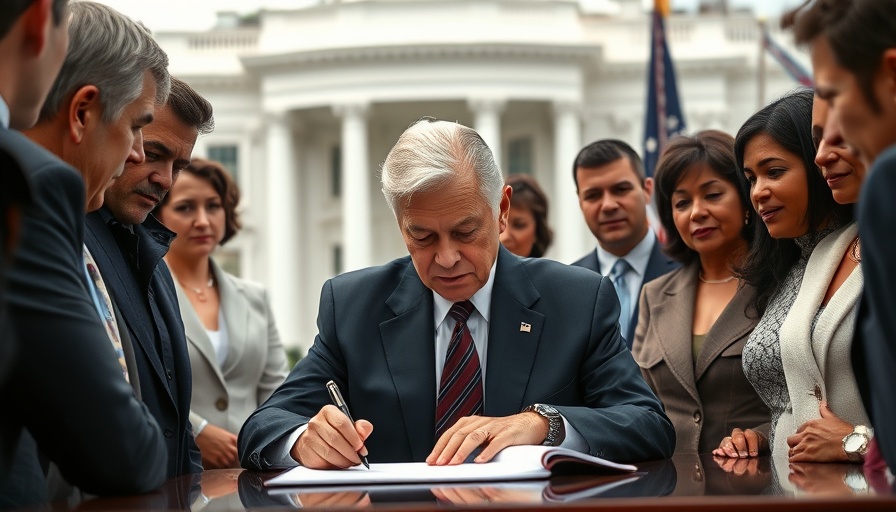
Trump's Latest Proposal: Impact on America's Farmers
In a recent public address, President Donald Trump revisited the contentious idea of allowing farmers to hire undocumented workers. This proposal, a strategy he has floated previously, emerges amid ongoing debates surrounding immigration policy and agricultural labor shortages. As Trump celebrates the passing of a major policy bill, this particular suggestion has added a new layer of complexity to discussions about workforce needs in the agriculture sector.
A Review of Agricultural Labor Needs
For decades, American agriculture has relied heavily on immigrant labor, particularly from Latin America. Farmers often struggle to find enough legal workers to meet the planting and harvesting demands. The seasonal nature of agricultural work makes it particularly challenging, as labor availability varies with the seasons. Moreover, with recent tightening of immigration regulations, many farms report an acute labor shortage that threatens their productivity and ultimately impacts food prices.
Context of Trump's Proposal
The push from Trump comes at a time when agriculture is being hit hard by inflation and supply chain disruptions, which are compounding pressures on farmers. By suggesting a pathway for undocumented workers to fill these roles, Trump believes he can address labor shortages while also appealing to his base that favors stricter immigration policies. However, this proposal has sparked controversy, with opponents fearing it could undermine labor standards, wages, and existing pathways for legal immigration.
Perspectives from the Agriculture Sector
Many farmers support Trump’s idea, arguing that it could be a viable solution to the ongoing labor crisis. For instance, a recent survey among farm owners indicated that nearly 70% believe that allowing undocumented immigrants to work legally would benefit the agricultural sector. These workers often take on labor-intensive roles with lower wages than native workers, making them a crucial component of the farm labor force.
Counterarguments and Concerns
However, critics warn that normalizing undocumented labor could set a dangerous precedent that undermines America's immigration laws. Organizations advocating for workers' rights argue that allowing the hiring of undocumented workers could exploit vulnerable populations, leading to lower wages and poor working conditions. These groups call for comprehensive immigration reform that secures workers' rights while also addressing farmers' needs.
Future Implications of Trump's Immigration Approach
Looking ahead, the potential acceptance of Trump's proposal could signal a shift in how labor and immigration are navigated in the U.S.. As agricultural needs become increasingly urgent, policymakers will need to weigh the importance of upholding immigration laws against the economic realities facing the agriculture industry. Will this open the door to more pragmatic solutions, or will it create further divisions in the immigration debate? As these discussions unfold, the need for a balanced approach that considers both legal labor pathways and workforce demands will remain critical.
In contemplating these pressing issues, it's imperative for citizens to engage with local representatives and voice their opinions on how immigration and labor policies should develop. Understanding the implications of such proposals can lead to informed discussions and advocacy for responsible and fair immigration reform.
 Add Row
Add Row  Add
Add 




 Add Row
Add Row  Add
Add 

Write A Comment